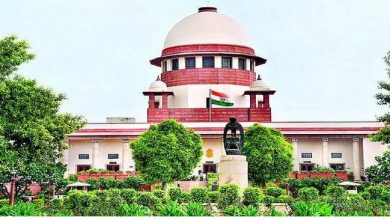Declining Water Levels Pose Threat of Shortages in Major Indian Reservoirs

The Central Water Commission (CWC) has raised concerns over the declining water levels in major reservoirs and river basins across India, despite the onset of summer still being ahead. Released on April 4, 2024, the latest data from the CWC highlights a worrying trend that could lead to drinking water shortages and agricultural challenges in the coming months.
At present, the live storage available in India’s 150 major reservoirs, monitored by the CWC, stands at a mere 35% of their total capacity, amounting to 61.801 billion cubic metres (BCM). This figure is notably lower than that recorded during the same period last year and falls below the average storage of the past decade.
Particularly alarming is the situation in the southern region, where 42 reservoirs are filled to only 20% of their capacity. These reservoirs, spanning across Karnataka, Andhra Pradesh, Telangana, Tamil Nadu, and Kerala, are crucial sources of irrigation water, drinking water, and electricity generation. Dams like Nagarjuna Sagar and Srisailam in Andhra Pradesh and Telangana have seen significant decreases in water levels, with Nagarjuna Sagar’s current live storage standing at just 2% of its capacity.
Furthermore, 13 east-flowing rivers between the Mahanadi and Pennar basins have been devoid of water for three consecutive weeks. In major river basins like Pennar and Cauvery, water levels are categorized as ‘highly deficient’ and ‘deficient’, respectively. This poses significant challenges for agriculture and water availability in these regions.
The declining trend extends across various river basins, including Ganga, Godavari, Mahanadi, Tapi, Narmada, Mahi, Krishna, and Brahmaputra, with the exception of Indus. Several states, including Punjab, Rajasthan, Odisha, West Bengal, Nagaland, Bihar, Maharashtra, Uttar Pradesh, Chhattisgarh, Telangana, Andhra Pradesh, Karnataka, and Tamil Nadu, have reported water levels below ‘normal’ storage, defined as the average storage of the last 10 years.
The situation is particularly concerning considering the India Meteorological Department’s warning of above-normal daytime and nighttime temperatures, as well as the likelihood of heatwaves during the upcoming summer months. Immediate measures and water conservation efforts are imperative to mitigate the risk of water shortages and ensure sustainable water management across the country.






